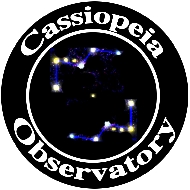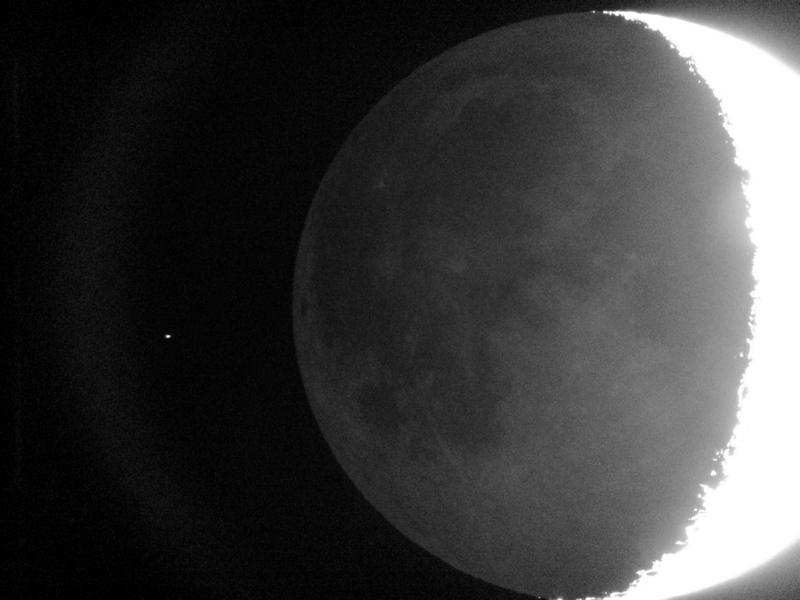
Crescent Moon, Moon and Hyades Conjunction
Posted: 4 April 2014
|
Opened: Thursday, 3 April 2014, 1814 MST Temperature: 75°F |
Session: 668 Conditions: Clear |
1828 MST: viewed the crescent moon, 83X. Then switched to 222X to identify lunar imaging target near crater Kane that was requested by a site visitor. Grabbed a quick iPhone 5s afocal 222X image of the area at 1838 MST:

1845 MST: some clouds now visible in the west. 1848 MST: sunset. Began preparing the D7000 DSLR for lunar imaging at prime focus of the 8" LX200-ACF.
This image was taken at 1904 MST, 1/320sec, ISO 1250:

These prime focus + 2X PowerMate images were taken at 1917 MST, "Hat Trick", ISO 100:



1922 MST: Completed D7000 lunar imaging. This iPhone photo shows the D7000 DSLR "Live View" of the requested lunar target area zoomed in:

And this is a crop of D7000 image above showing the target area:

I then began photographing the Hyades and Moon conjunction using the D7000 DSLR with 70-300mm VR zoom telephoto lens. This handheld photo was taken at 1940 MST, f/4.8, 1/10sec, ISO 6400, 145mm:

1950 MST: resumed lunar observing, 222X. There were many nice views along the terminator.
Slewed to Jupiter and viewed it and the four Galilean Moons using 222X. Switched to 444X but seeing was not quite good enough for that much magnification.
2004 MST: returned to the moon and using 222X checked for any grazing star occultation possibilities. However, a bright star was about to be occulted. The star was Delta3 Tauri, a Magnitude +4.3 variable double star. This afocal 83X iPhone 5s photo shows the Earthlit portion of the moon and Delta3 Tauri:

I then began observing the moon and star for the occultation, which occurred at approximately 202330 MST.
Due to an early morning commitment the next day, I began closing up for the night.
|
Closed: Thursday, 3 April 2014, 2035 MST Temperature: 51°F |
|
Comments are welcome using Email. If you are on Twitter you can use the button below to tweet this report to your followers. Thanks.
Cassiopeia Observatory Home Page